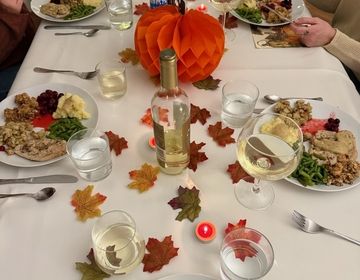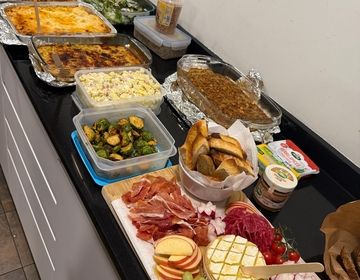Blake Shelton and My Spanish Bank Account
Hello, blog. He vuelto. My first post (this one) will be a tale of failure and triumph. I’m sorry I haven’t written sooner, but I arrived two weeks ago and hit the ground running. I wanted to wait until I had some spark of inspiration. I don’t want to write solely informational posts, or solely soul-searching ones either. What pushed me to finally begin this word-focused journey was an encounter between a Spanish banker and myself.
At first I wasn’t sure if she was friendly, if I was annoying her, if she understood a word I said. As I translated word after word in my head, she looked at me with a straight face. I had no idea how I seemed: does it sound like I know any Spanish at all? Does it sound like I’m crazy? But in the middle of trying to open a bank account, I realized exactly what I was doing. I was opening a bank account in another language in another country. Me. Opening a bank account in Spanish in Spain. I felt as though I had conquered…something. Not sure what. But I realized after I struggled to say “I have a placement letter from the government” and “my program gave us a packet about the Expansion Account at this bank” that I had arrived. I was experiencing the precise moments I had been thinking would solidify my experience living in Spain. What defines living more than opening a bank account? A lot of things. But I hope you get the point.
Amparo and I spent a while together, or what seemed like a while. I don’t have a Spanish cell number so I couldn’t receive a message to open online banking. Amparo tried a few different things, made a few calls, but I could not receive the message. As I felt defeated, I overheard Amparo say on the phone “extranjera.” “That’s me,” I thought, “extranjera” (foreigner). Ugh. I am “extra,” not integral.
I said to Amparo, “Mi español es mejor que suena,” which hopefully means “my Spanish is better than it sounds.” In a quick string of sentences she said that I speak well and that her level of English is low. I looked at the stacks of papers across her desk, Spanish words floating everywhere, and felt comforted. For the first time I stopped beating myself up about my Spanish ability. “Wow,” I thought, “I am living my dream. And even if my language level is not where I hope it’d be, I have enough to open a bank account, and that seems like a darn lot.”
Enter Blake Shelton. On the bus ride back from the bank, Shelton’s 2013 hit song “Boys ‘Round Here” fittingly came on my shuffling music. It’s a song about culture and place. “Well the boys ‘round here don’t listen to the Beatles, [they] run Ol’ Bocephus (a nickname for Hank Williams Jr.) through a jukebox needle at the honky tonk, where their boots stomp all night.” The boys ‘round Blake Shelton’s parts do X, but they don’t do Y. Specific cultural activities take place while others, according to the song’s narrator, most certainly do not. “The boys ‘round here, they’re keepin’ it country. Ain’t...one know how to do the Dougie.” The “Dougie” is a popular dance routine used in Cali Swag District’s 2010 song “Teach Me How to Dougie.” The song repeats, “teach me how to Dougie, teach me, teach me how to Dougie” and directs listeners in its movements. Every party at every university, every high school house party in the U.S. heard the Dougie at some point during the weekend. Shelton’s lyrics, however, assert [yes, it’s been a while since I wrote creatively] that his group does not know how to do the Dougie. “You don’t do the Dougie?” a female voice asks in the song. “Naw, not in Kentucky,” Shelton replies.
Cut to the music video for “Boys ‘Round Here” (https://www.youtube.com/watch?v=JXAgv665J14). White men and women in denim and cowboy hats drink beer and dance in a barn. Suddenly the doors open and a group of Black men look in at the party. The partying people stop dancing and look at the men at the door. After they look to each other, the men walk in towards Shelton at the center of the dance floor. At first, the relationship between them is unclear. But then, they hug and say hello. Suddenly everyone at the party is dancing together and the Black men are teaching the white partygoers how to Dougie. The music video shows that in his lyrics Shelton makes fun of the idea that one place includes all the same people doing all the same things and excludes anything or anyone different.
At my bank account opening I couldn’t have felt more like an outsider. The account they were opening for me even includes the word “extranjera.” But during the conversing about account numbers and my American telephone number, I felt proud of myself. I felt as though I kind of fit into Spanish society. If the Spanish language includes the word “extranjera,” then perhaps there is a place for me ‘round here.
Related Posts
An Unexpected Yet Required Skill When Moving Abroad
Considering living abroad? Read on to see if you have what it takes!

An American in Spain: Thanksgiving Edition
Where to find ingredients in Madrid for a classic Thanksgiving dinner!

A Long Overdue Update from Spain
Long time no blog! I’m so sorry for the radio silence. Life has been life-ing lately — school started, presentations and lesson planning kicked in, I got sick (more than... keep reading